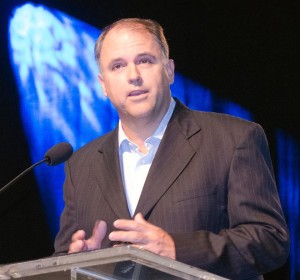The United States Supreme Court has denied a request by the Southern Baptist Convention’s North American Mission Board to end a case brought against it by the former leader of a Baptist state convention.
Among a long list of cases either accepted or rejected by the high court Monday morning, June 28, was North American Mission Board v. McRaney, which was rejected by the court. That means the case brought by Will McRaney against NAMB may proceed in lower courts.
“Today is a win for all Southern Baptists that believe that their local church and Baptist body is Baptist headquarters, not NAMB,” McRaney wrote on his Facebook page. “Thank you SCOTUS for recognizing and upholding the clear separation and autonomy of churches and Baptist bodies when #NAMB trustees refused to. Baptist Polity and Autonomy is preserved.”

Will McRaney
McRaney, former executive director of the Baptist Convention of Maryland and Delaware, said he looks forward to evidence in the case becoming public and getting a hearing by a jury. “From day one my intent has been to get the truth out there and to expose the harm and damages done to the Southern Baptist Convention, me and to other Baptist bodies and leaders. Now we will see what the evidence and sworn testimony reveal.”
More than three dozen outside parties to the case had filed friend-of-the-court briefs asking the Supreme Court to end the case brought by McRaney, claiming that allowing McRaney’s case to proceed would be a violation of religious liberty rights afforded churches.
The court apparently was not swayed by those arguments, which opens the door for a potentially important dive into how far the “religious exemption” given to faith-based entities extends. Courts generally decline to get involved in “ecclesial” matters.
McRaney has contended that his firing by the Maryland-Delaware convention — which he says was demanded by NAMB President Kevin Ezell as retribution — falls outside that religious exemption because NAMB was not his employer.
When NAMB sought to change its relationship and funding agreement with the Maryland-Delaware convention, McRaney resisted. He contends he was an early victim of a dispute between state Baptist conventions and the national SBC. His lawsuit claims that because he resisted the changes required by NAMB — and specifically Ezell — Ezell and other NAMB officials demanded his termination by the two-state convention, which in theory is fully independent of the SBC. And he claims that demand came with a threat to withhold $1 million in annual funding if McRaney were not fired.
The court apparently was not swayed by those arguments, which opens the door for a potentially important dive into how far the “religious exemption” given to faith-based entities extends.
Further, according to court documents: McRaney alleges that “NAMB leadership continued to interfere with business and contractual relationships that McRaney had with third parties.” That included McRaney being disinvited to speak at events sponsored by two other state Baptist conventions, one in Florida and one in Mississippi.
What began as a state court case in Mississippi in May 2017 got elevated to a federal court at the request of NAMB’s attorneys. Nearly two years later, in April 2019, Judge Glen Davidson of the U.S. District Court Northern District of Mississippi dismissed McRaney’s lawsuit, saying the court could not consider McRaney’s claims because of a tenant known as the ecclesiastical abstention doctrine.
McRaney argued on appeal that the ecclesiastical abstention doctrine did not apply. That led a three-judge panel of the U.S. Court of Appeals for the Fifth Circuit in July 2019 to reverse the earlier dismissal, saying this case appeared to be about more than “purely ecclesiastical questions.”
In August 2020, NAMB asked for a full court hearing of the case rather than it being sent back to the District Court judge who had ruled before. That request was denied in November 2020, prompting NAMB on Feb. 17 of this year to file a petition for a writ of certiorari, asking the Supreme Court to review the earlier ruling of the U.S. Court of Appeals for the Fifth Circuit.
That is what the court denied on June 28.
NAMB is represented in the case by First Liberty Institute, an ideologically conservative organization focused on religious liberty cases and based in Plano, Texas.
Jeremy Dys, special counsel for litigation and communications at First Liberty Institute, expressed disappointment at the decision not to hear the case, according to Baptist Press.
“The First Amendment prohibits the government from interfering with the autonomy of religious organizations or the local church,” Dys said in a statement released by First Liberty. “We are deeply disappointed that the Supreme Court decided not to hear this important case. … There should be no doubt that religious institutions — not judges — have the freedom to choose how to fulfill their religious missions and with whom.”
Related articles:
SBC agency’s appeal to Supreme Court touches on religious liberty, defamation and Baptist autonomy


